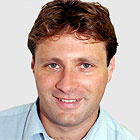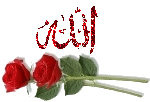Linda Sarsour
Linda Sarsour, 31, remembers the exact moment when it dawned on her that the terrible events of September 11, 2001, would change her world. Sarsour, then a student at a local college in Brooklyn, had grown up in the tight-knit Arab American community of Bay Ridge in the suburbs of New York city. She was from a Palestinian American family and fiercely proud of both sides of her identity.
But as she rushed into her home just a few hours after the attacks she was stunned to see her mother hurrying out of the house with her hair uncovered. Even through the shock of the morning's events, it was still an arresting sight to see her mother not wearing a headscarf in public. "I bumped into her," Sarsour says. "I was: 'Mom! You forgot to wear your hijab.' And she said: 'We can't wear it.' She was going to pick up my brother from middle school. My brother looks like a white kid with dark hair and she didn't want to wear a hijab so that people would not know he was a Muslim. I was speechless."
Ten years later Sarsour, who as a young student was not especially interested in community activism, is director of the Arab American Association of New York (AAANY). She sits, wearing a hijab herself, in a back room of the AAANY office off Bay Ridge's busy main drag. Sarsour is a petite woman with a strong Brooklyn accent. She is calm and composed , even though the interview is constantly interrupted by people seeking help and advice. That is normal. The AAANY is a lifeline to the community of Bay Ridge and beyond. It offers legal advice, help on immigration and summer classes for young kids. Today, the lobby is packed with Muslim women eager to sign up for English language courses. "It's just the normal everyday chaos," Sarsour says.
She joined the organisation in 2002 when she was asked to help the AAANY cope with the fears of a Muslim American community increasingly under suspicion in a country terrified of another attack and about to go to war in Iraq. "I had women that would come and say the FBI had been. Sometimes it was actually NYPD or immigration but our community always called them FBI," Sarsour says. "They would say: 'In the morning they came to my house and they took my husband.' They had no information about where their husband was or where they were taken. I started thinking to myself: 'I have to learn more about this and what is going on.'"
What Sarsour realised was that Muslim Americans – and Arab Americans in particular – were about to become America's latest ethnic scapegoat. Many groups had been there before them. When the Irish first came to America in the 19th century they were feared and discriminated against. Later, mass immigration by Italians and Jews saw them suffer the same indignities. Roman Catholics, including John F Kennedy, were once seen as potentially dangerous elements, subject to the influence of a foreign power. Japanese Americans were interned in their thousands during the second world war. Now, over the past decade, Sarsour believes, Muslim Americans have suffered from similar prejudice and suspicion.
Since she saw her mother shed her hijab to collect her brother from school she thinks things have only got worse. "It has happened to other communities before ours," she says. "But we are the victims now."
Sarsour lists the problems in the New York region. There was a knife attack on a cab driver last year after his passenger asked him if he was Muslim – and then slashed him when he replied that he was. There are bullying incidents in schools that she hears about from her friends and family. There was the furore over the so-called "Ground Zero mosque" in lower Manhattan. That was followed by other attempts, some successful, to prevent mosques being built in and around the city.
Finally, there was the fuss over Florida preacher Terry Jones and his decision to burn a Qur'an. For Sarsour it seemed Islam itself was questioned by her fellow Americans. "It makes me feel foreign when I am not foreign," she says. She tells a story of being verbally abused in a Bay Ridge bank by a fellow customer who disliked her headscarf.
She speaks of a young Muslim boy at a summer camp who was afraid to admit his faith out of a fear he would be stabbed, just like the taxi driver. "It makes me sad that our kids are growing up in a country where they are American, but in a sense, have to prove it. They can't just be who they are like everyone else. Who they are is something suspicious, something scary, something misunderstood," she says.
But Sarsour believes she can embody her two identities: that of a Muslim of Palestinian descent, and that of an American woman born and bred in Brooklyn. "My American side marries my Palestinian side well. Americans in general, we are very steadfast people, we know what we want, we get what we want. My American side makes me fearless."
Which is perhaps why Sarsour's ambitions lie beyond the AAANY. She has already flung herself into local Democratic politics by organising voter drives in Brooklyn. She believes that through hard work and campaigning she can persuade not only the Muslim Americans of Bay Ridge to vote for her, but also the rest of the community: the Italian Americans, the Irish Americans and the Russians. Anyone, really, regardless of faith. She aims to stand for office one day, wearing her hijab. "I care about affordable housing, I care about bus routes, I care about small business, I care about schools. These are not Muslim issues. Even protection of civil rights – that's not just a Muslim issue. That is for everyone."
Ten years after 9/11, perhaps one of the least expected outcomes of that terrible day will be a headscarf-wearing Arab American woman hitting the streets of Brooklyn and asking her fellow citizens for their votes.
Source:
by Paul Harris
guardian.co.uk, Monday 5 September 2011 20.00 BST
by Paul Harris
guardian.co.uk, Monday 5 September 2011 20.00 BST










